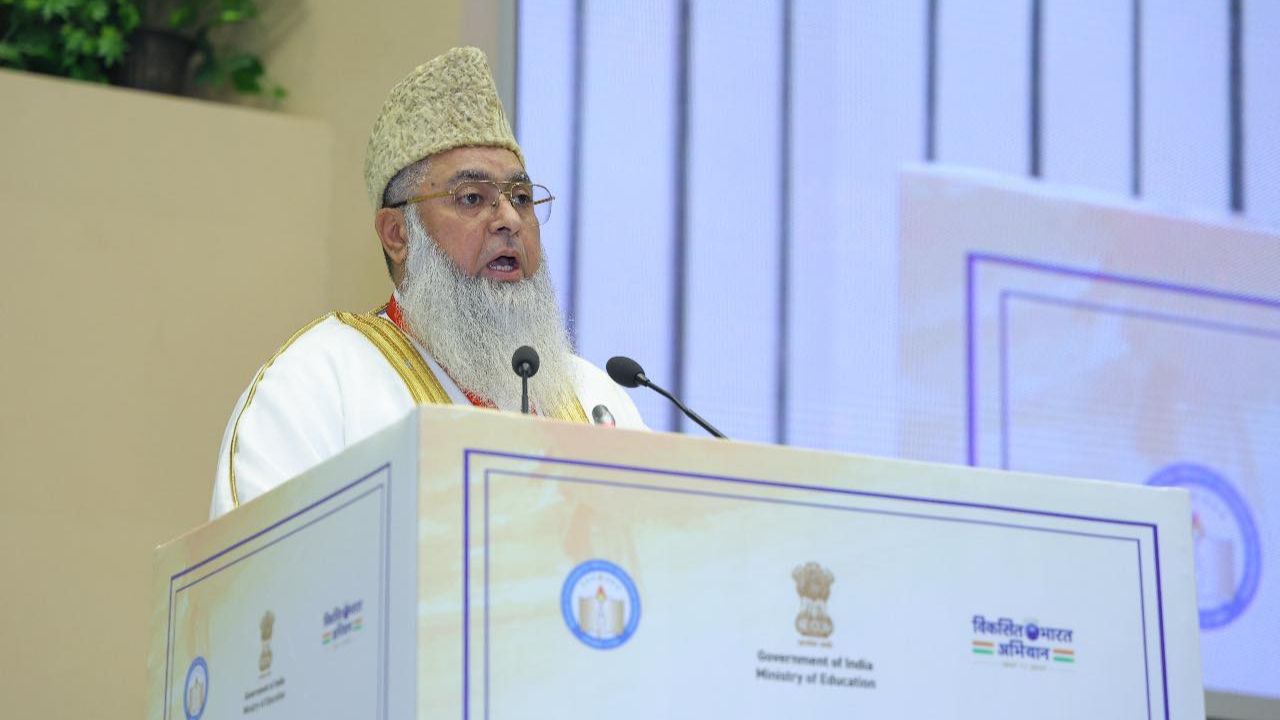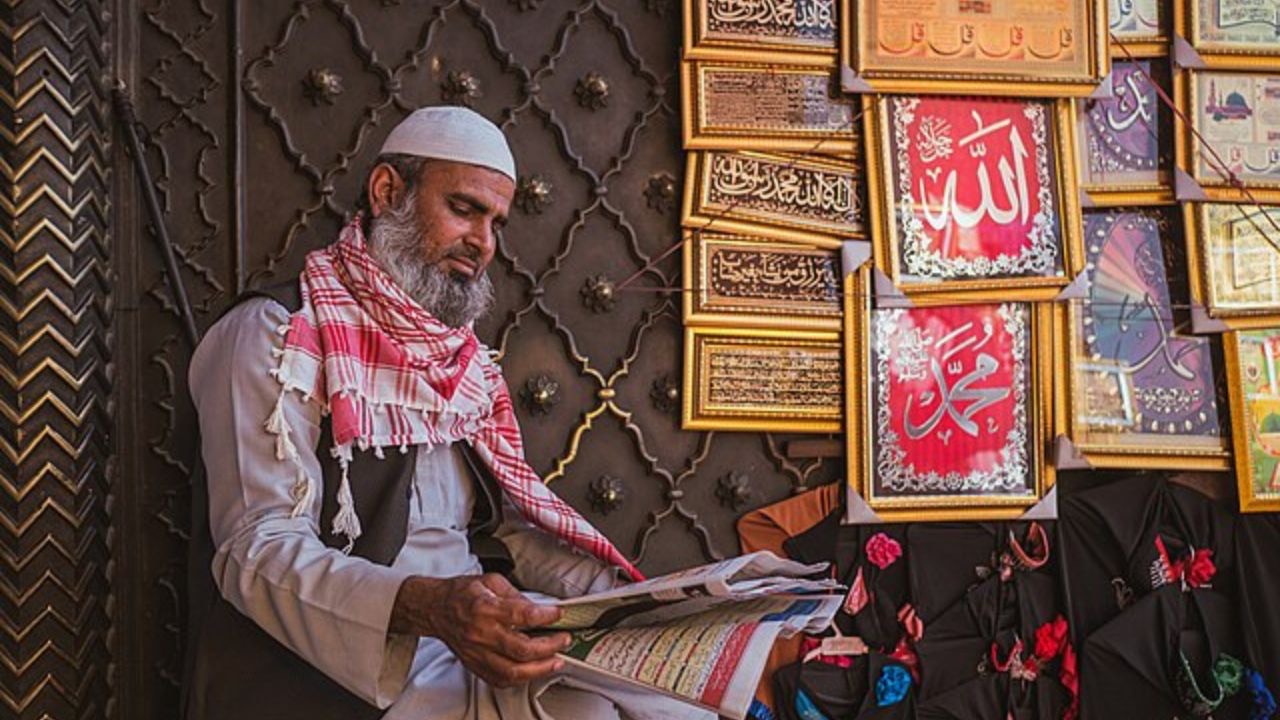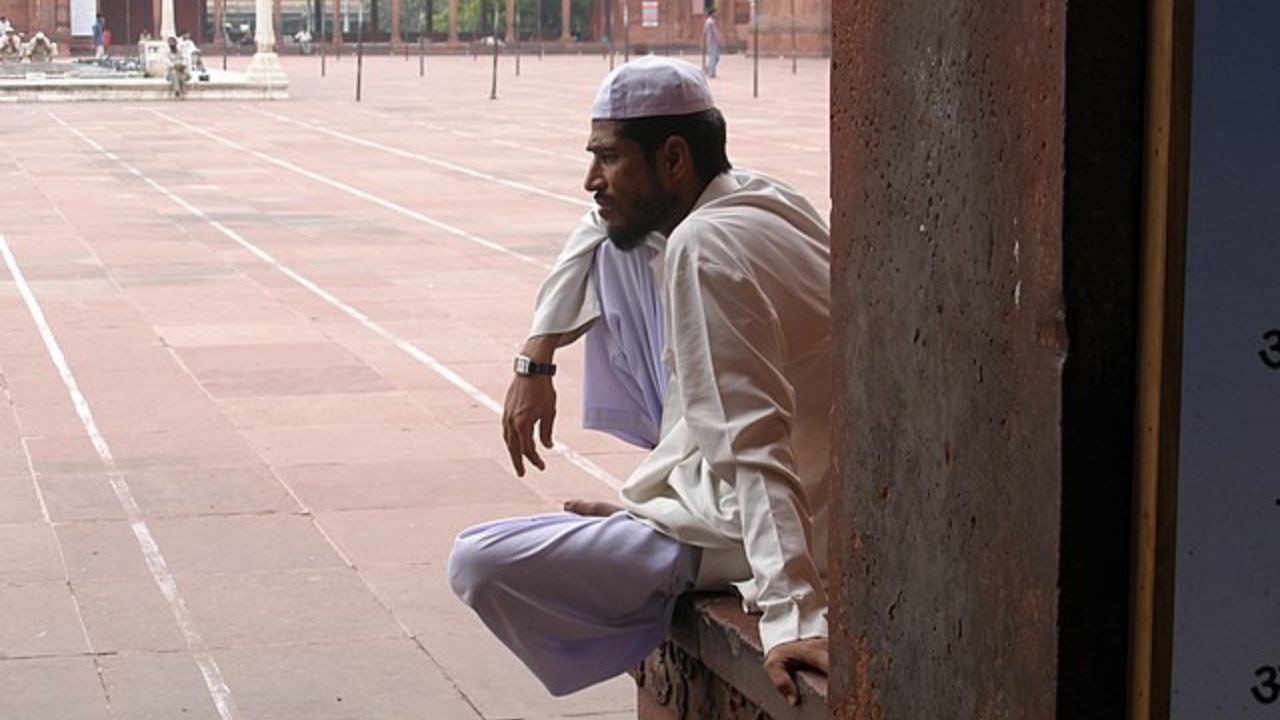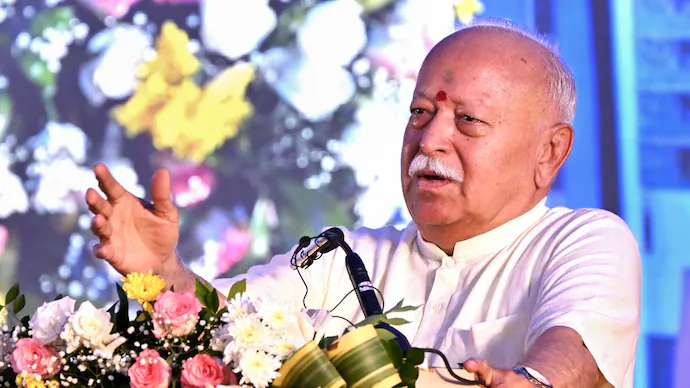Shoaibur Rahman, TwoCircles.net
New Delhi: On July 24, at Haryana Bhawan in New Delhi, Rashtriya Swayamsevak Sangh (RSS) chief Mohan Bhagwat met with over 60 Muslim clerics, scholars and community leaders in a closed-door meeting organised by the All-India Imam Organisation (AIIO). Led by AIIO President Imam Umer Ahmed Ilyasi and titled ‘Samvaad’ (dialogue), the event brought together participants from across the country to discuss issues related to communal harmony and mutual understanding.
For over three hours, leaders from communities often seen at odds spoke of ending hatred and fostering communal harmony. “This kind of positive and inclusive dialogue has not happened in the last 75 years. It is for the first time that such a large delegation of Muslim scholars has met the RSS leadership. Earlier, only a few clerics met Mr. Bhagwat individually. Now, the conversation has begun collectively, and that is a breakthrough,” Ilyasi told TwoCircles.net.
The agenda of the meeting was a “desire to untangle long-standing misunderstandings” between Hindu and Muslim communities. The discussions, claimed AIIO head, included issues that have caused unease within the Muslim community such as the Waqf (Amendment) Act and recent mosque and madrasa surveys.
Ilyasi pointed to Bhagwat’s earlier statement discouraging the search for Shivlings (sacred representation of Lord Shiva in Hinduism) in every mosque as a trust-building gesture that helped set the tone. “That statement was important. It helped build trust and set a constructive tone for the discussion,” he said.

Beyond high-level talks, he proposed grassroots-level engagements like interfaith dialogues between mosque imams and temple priests. “That is where real change begins. Only then can we achieve communal harmony and eradicate hatred,” he said.
The meeting was carefully orchestrated. Ilyasi, known for controversial but strategic gestures, such as calling Bhagwat Rashtrapita (father of the nation) in 2022, has tried to position himself as a bridge-builder. His organisation claims to represent the country’s extensive network of imams (prayer leaders) and religious leaders with considerable sway in Muslim neighbourhoods.
Senior RSS leaders, including General Secretary Dattatreya Hosabale, Joint General Secretary Krishna Gopal, Ram Lal and Indresh Kumar attended, are said to have emphasised “importance and seriousness” of the event. Discussions were largely off the record but touched upon “national issues” and the shared responsibility of religious leadership in rebuilding unity.
This meeting was not an isolated effort. Over the last few years, the RSS, which was founded in 1925 and considered the ideological mentor of the ruling Bharatiya Janata Part (BJP), has taken gradual steps to reach out to Muslim leaders. While its reputation remains polarising, especially among minorities, it has attempted to soften its image through such dialogues.
In 2019, Bhagwat met Maulana Arshad Madani of the Jamiat Ulama-i-Hind (JuH) at RSS headquarters in Nagpur. In 2022, he visited a mosque in Delhi and met Ilyasi and several Muslim intellectuals, including former Chief Election Commissioner Dr. S.Y. Quraishi and former Delhi Lieutenant Governor and former Jamia Millia Islamia Vice Chancellor Najeeb Jung. Each of these engagements has added a layer to a developing narrative: one of dialogue over distance.

The latest meeting comes at a politically charged time. The BJP-led National Democratic Alliance (NDA) government, under Prime Minister Narendra Modi, who is serving his third term in office, is under growing scrutiny for policies seen as discriminatory against Muslims. Positioned as a reform, the Waqf (Amendment) Act has faced backlash over concerns of overreach. Mosque surveys, including the one at Varanasi’s Gyanvapi mosque, have further deepened anxieties.
Some view this RSS outreach as a gesture of goodwill, while others suspect political calculus, especially with state elections looming in places, such as Bihar, West Bengal and Uttar Pradesh, where Muslim voters can shift the balance.
Prof. Geeta Bhatt of the Delhi University emphasised the importance of keeping channels open. “Certain misunderstandings keep happening, but that can only be resolved through dialogue. RSS Chief Mohan Bhagwat ji has also previously said that we all share the same DNA. The message of this meeting is that we all have the same blood running in our veins. The mode of prayer might have changed, or it may differ, but we are all the sons and daughters of this soil,” she said.
However, not everyone is ready to endorse the effort. Former Rajya Sabha MP and RSS leader Prof. Rakesh Sinha declined to comment, as did RSS thinker Professor Sangit Kumar Ragi.
For some Muslim intellectuals, the doubts run deep. Dr. Javed Jamil was among those who dismissed the dialogue as performative.
“The only positive aspect of such dialogue is that they promote interfaith communication. However, the negative aspects outweigh the positive ones. These meetings do not address the incidents of discrimination, mob lynching, bulldozer demolitions and state-sponsored injustices being done against Muslims across the country,” he said.
He also criticised alleged “systemic biases” in the justice system. “When Muslims are accused, they are quickly arrested and kept in jail without trial, as seen in cases like Sharjeel Imam and Umar Khalid. But Hindu convicts often escape punishment or are released by the state, as seen in the case of Bilkis Bano,” he alleged.
He expressed concern over the credibility of Muslim representatives in these meetings. “The RSS tends to engage with Muslim clerics and leaders who are viewed with suspicion by the community; people who are seen as echoing the RSS’ narrative rather than representing concerns of our community,” he said and added, “Dialogue should be held with genuine leaders, scholars and clerics who understand the ground realities and can advocate for real solutions.”
He also pointed to the electoral timing of such events. “These meetings often happen just before elections. If the goal is really communal harmony, why does anti-Muslim politics and hate speech continue?” he asked.
In Delhi’s Jamia Nagar, a locality with a large Muslim population, reactions varied. Mohammad Asif, a 28-year-old shopkeeper, expressed cautious optimism. “If Bhagwat and our imams can talk, maybe it will reduce the fear we feel,” he said.
Ayesha Khan, 25, another resident, was unconvinced. “These meetings look good on paper, but when our rights are trampled, it is hard to trust,” she said.
Senior journalist Varun Singh offered a broader view. “Muslim outreach by the RSS is not new. The novelty now is only in RSS leaders meeting maulanas (clerics). The Muslim Rashtriya Manch, created in 2002, has led such initiatives for years. But no major shift has occurred in Muslim support for the RSS or the BJP,” he said.

“The RSS has not been able to overcome its anti-Muslim image. That perception persists. And electorally, Muslims have largely stayed away from the BJP. I do not see any real impact of these recent dialogues on the ground,” he added.
On the global stage, these dialogues also serve another function. With organisations like the U.S. Commission on International Religious Freedom raising concerns over India’s religious climate, such gestures are often seen as India’s way of reaffirming its pluralistic identity. But at home, the challenge is less about optics and more about outcomes.
India’s path to communal harmony is long and layered. It demands more than symbolic meetings. It requires systemic change like legal fairness, economic equity and an end to divisive narratives. If those in power fail to follow up, the goodwill sparked by dialogue risks fading fast.
Still, in a country where fault lines run deep, even an image of Mohan Bhagwat and Umer Ahmed Ilyasi, sitting across from one another and talking peace, can be a powerful one. Whether it leads to lasting change or remains a passing moment will depend on what follows.


